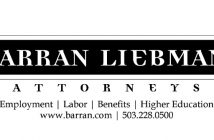Questions posed by Jenn Limoges and Walt Ramage of NAI Cascade Commercial Real Estate with answers from Sharon R. Smith, Attorney & Shareholder with Bryant Lovlien & Jarvis Attorneys at Law.
Q: What questions are your clients most frequently asking you about the UGB now that it has been approved by the state?
A: There are two types of property owners impacted by the UGB expansion. First, there are those in the expanded Areas. Second, those within the pre-existing UGB with changed zoning. Some properties in “Opportunity Areas” of the existing city were re-zoned and now must meet higher density requirements and have new zoning designations. For those property owners, the questions are focused on the new rules for development. For the owners in the expanded Area, the main question is how soon can we develop?
Q: You have extensive experience through multiple rounds of UGB expansion and annexation. What are the top three hurdles you see that need to be overcome in order for land in these Areas to be ready for development? Are these hurdles different based on Area within Bend? For example, the SE Elbow vs. NE vs. The Thumb vs. West, etc.
A: The major hurdles are: 1) Planning and funding of infrastructure (transportation, sewer and water); 2) Completing an Area Plan or Master Plan (depending on the location) to design the actual layout of the various residential, commercial and public uses; and 3) Annexation.
The hurdles are very different depending on the Area. Within the Areas owned by a single entity, the owner must complete a Master Plan. For Areas with multiple owners (SE Elbow, Northeast, OB Riley and North Triangle) there must also be an Area Plan, or a Master Plan with a minimum of forty acres and a framework level Area Plan for the rest of the sub-Area. Area Plans can be initiated by the City or the Owners. They will provide an overall framework for the transportation network, sewer, water, and mix of uses within the Area.
Depending on the Area, there will be different challenges. For example, the Southeast Elbow will be served with sewer from the SE Interceptor now under construction, but is faced with significant challenges to design and fund the transportation system. The Northeast has many landowners who will need to work together to agree on the rearranging of zoning to create a complete community with schools/parks and that will set the stage for the next UGB expansion. The North Triangle owners will need to work with the Oregon Department of Transportation to address the significant unfunded transportation needs of this Area.
All expansion Areas will face the unsolved problem of how to pay for the infrastructure to serve them. The City is now determining how to plan and pay for the update to the Sewer Collection System Master Plan, Water System Master Plan and the System Development Charge methodology. The City will be working on these updates for at least the next three years. The City will likely select an Area to develop the first initiated Area Plan, potentially in early 2018 for completion in 2019. These timelines are estimates only at this early stage.
Given the complexity and time to complete an Area Plan, it is likely that the first expansion will occur in the Areas that need only Master Plan (DSL – eastside, the Thumb, West Area, Southwest and Shevlin).
Q: If a Buyer wanted to put a property into contract today that is not yet annexed, how would you guide them through this process? How much time would you recommend for due diligence? Would there be specific items you would be concerned with?
Because there is so much the City needs to do to plan for the needed infrastructure, it is challenging to estimate the amount of time needed for due diligence. If the Buyer is interested in an Area that does not require an Area Plan, the time needed will be less than that needed for properties that require Area planning. If a Buyer is looking at properties requiring Area planning, the minimum size to proceed ahead of the Area Plan is forty acres. Even then, there will be very extensive planning needed beyond Master Planning the forty acres to develop the framework plan for the rest of the Sub-Area.
The critical issues in any location will be the availability of sewer and water and the needed transportation infrastructure. In some Areas, sewer availability could be five-ten years away. In other Areas, transportation needs could be tens of millions of dollars up to over 100 million dollars. Each property will present a unique set of challenges for due diligence.
Q: What are the requirements to do a Master Plan and is it worth the expense vs. waiting for an Area plan?
The City is currently updating its Master Plan code and it will likely be adopted in March 2017. The code requirements are extensive. There are two types of Master Plans: Major and Minor. A minor Master Plan is one that complies with the code and is consistent with the Comprehensive Plan designation. The Major Master Plan allows modifications to the development standards (such as setbacks, heights, road widths, etc.) and moving types of zones and uses around within Master Plan. Given the very broad planning in the expansion Areas, it is likely that most Master Plans will be Major to allow the zoning designations to be re-arranged to design a complete community.
The Master Plan and the Area Plans will both be very expensive processes. The trade-off is timing. Unless you are fortunate to be in the first location the City chooses to initiate an Area Plan, it could be five years or longer if you wait for the city. Alternatively, a group of property owners could work together to develop the Area Plan and share in the cost. The city has yet to develop the code governing Area Plans and is also working on updating its Annexation code.
Q: Finally, if a Buyer elects to go down the path of obtaining Master Plan approval, what team of experts should the Buyer have in tow?
A: The team should include a commercial real estate broker, land use attorney, planning consultants, civil engineer, landscape architect/designer, traffic engineer and architect/designer.
Feel free to reach any of us with questions. Stay tuned for Part III, a Q&A with property owners in the UGB expansion areas.
Sharon Smith: smith@bljlawyers.com
Walt Ramage: wramage@naicascade.com
Jenn Limoges: jlimoges@naicascade.com





